Columns
5 countries in Africa where it snows
Published
5 months agoon
By
Ekwutos Blog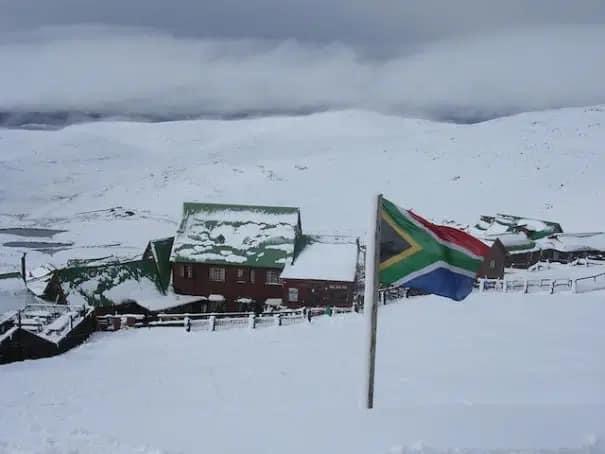
By Oluwaseyifunmi Awobiyi
The belief that Africa is a continent of dry seasons is just a misconception as there are countries in Africa where snows are no surprises.
These countries, located at higher altitudes or further from the equator, show that Africa’s geographical diversity also extends to its climate.
This variety challenges the narrow perceptions many hold about Africa, reminding us that it is a continent of contrasts. From tropical rainforests to snow-capped mountains, Africa’s climate reflects its vast landscape, which is as diverse as its people and cultures.
Here are the five countries in Africa where snow falls.
South Africa
South Africa is a vast nation featuring a diverse array of landscapes. The winter season lasts from June to August, and for those interested in experiencing snow, the Drakensberg Mountains are the ideal destination. This area attracts visitors who enjoy taking photographs in the snowy scenery and engaging in activities like sledding.
Read also:
5 countries with the poorest people in the world
5 places rich people keep their money
While snowfall can occasionally occur in major cities such as Johannesburg, these events are quite rare.
Morocco
In Morocco, snowfall primarily occurs between December and February, though it is limited to the northern regions of the country, particularly in the Rif and Atlas Mountains. Snowfall is not guaranteed every year, making it a somewhat unpredictable phenomenon.
During these winter months, temperatures in the mountainous areas can plummet to as low as -8 degrees Celsius, creating a stark contrast to the warmer climates found elsewhere in the country. The combination of cold temperatures and occasional snow transforms the landscape, drawing visitors for activities such as skiing and snowboarding in places like Oukaïmeden and Michlifen.
Related News
- Top 5 innovative countries in Africa
- Top 5 countries in Africa where workers earn lowest salaries
- Top 10 countries in Africa where workers earn highest salaries
This unique winter experience adds to Morocco’s diverse climatic offerings, showcasing its ability to cater to both winter sports enthusiasts and those seeking to enjoy its stunning snowy vistas.
Tanzania
Although many regions of Tanzania get cold enough to wear sweaters and boots, the only place in the country with snow is Mt. Kilimanjaro.
The summit of the mountain can get extremely cold with arctic temperatures and heavy snowfall.
Snow is more common during Kilimanjaro’s dry season which runs from mid-June to October but the most amount of snow is during the month of December with very cold temperatures. The months to expect snow are June, July, and August.
Uganda
Uganda experiences snow exclusively on the peaks of the Rwenzori Mountains. The summit is very cold, frequently covered in snow and glaciers. Some travelers choose to hike up to see the snow firsthand, while others prefer to enjoy the view from lower elevations.
Lesotho
Lesotho boasts some of the tallest mountains in Africa, which contribute to its potential for snowfall. The winter months, spanning from June to August, frequently see temperatures dipping to around 0 degrees Celsius. This mountainous terrain creates conditions conducive to cold weather, making snow a common occurrence during this season.
You may like
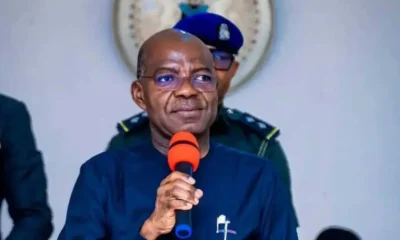

Otti orders investigation as Fire Service officials switch off phones during fire disaster in Aba


As a L£gally married w0man. Atanda, how long do i need to wait before getting married to another man L£gally in case if my husband kpai? I hope there will be no need for Div0rce again
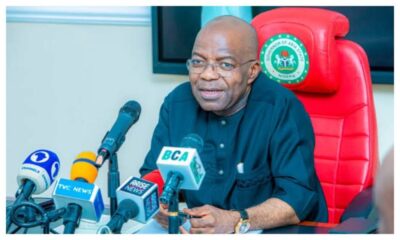

Supreme Court: Abure’s sack will restore peace, order in LP – Otti
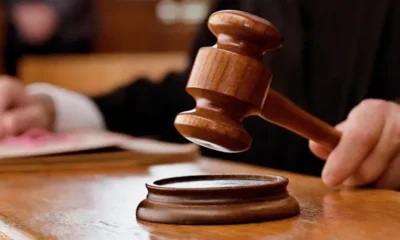

1984 riots: Court records statement of former chief of Delhi Sikh body against Jagdish Tytler


Zinoleesky Welcomes New Addition to His Family


Police Arrest Impostor In Uniform For Inciting Comment Against Edo People On Social Media
Columns
Afghan’s claim he is 140 years old is investigated by the Taliban
Published
16 hours agoon
April 4, 2025By
Ekwutos Blog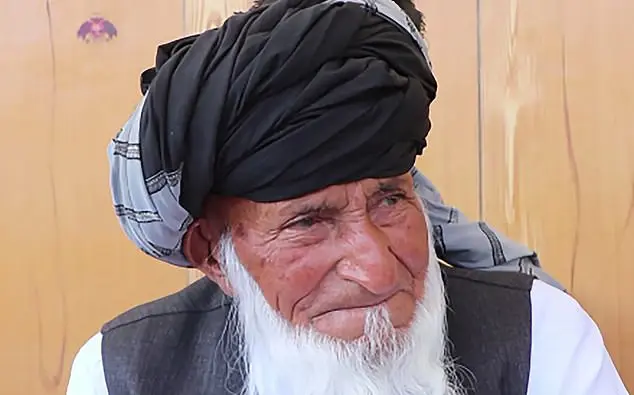
The Taliban is investigating an Afghan man’s claim that he is 140 years old – which would make him the oldest person ever to have lived.
Aqel Nazir, who lives in the country’s eastern Khost province, says he was born in the 1880s.
He claims to remember celebrating the end of the Third Anglo-Afghan War in 1919 alongside King Amanullah Khan, the Afghan leader who launched a campaign against the British, while in his thirties.
Nazir, who lives in the picturesque hills in Khost, said: ‘I was in the palace with King Amanullah Khan.
‘I was over 30 at the time and I remember saying that the British had fled and knelt down.
‘Everyone was happy and thanked King Amanullah Khan for chasing the British away.
‘Many leaders accompanied us to the Arg [presidential palace], but now all of them have passed away.’
The great-great grandfather does not have any documents to support his claim, but his family are also on board with gaining official recognition of his status.
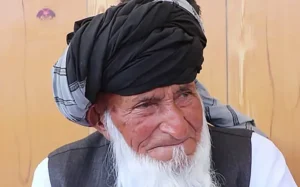
Aqel Nazir, who lives in the country’s eastern Khost province, says he was born in the 1880s
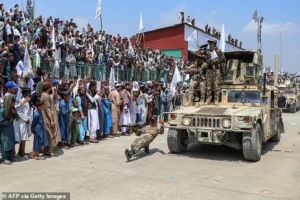
The ruling Taliban administration has dispatched a a special civil registration team to assess his true age
Khyal Wazir, his 50-year-old grandson, said: ‘He is my grandfather, and I have my grandchildren as well.’
Another grandson, Abdul Hakim Sabari, said: ‘We request the government confirm our grandfather’s age using an ID or any other scientific method or documents, to prove he is 140 years old.’
In an attempt to solve the mystery, the ruling Taliban administration has dispatched a a special civil registration team to assess his true age.
Mustaghfar Gurbaz, a Taliban spokesman for the province, said: ‘If confirmed by documents or assessments, we will work to register him as the oldest person in the world.’
If verified, he would comfortably take the title of the oldest person to have ever lived.
That record is held by Jeanne Calment, who was born in 1875 and passed away in 1997, 122 years later.
The world’s current verified oldest living person is Inah Canabarro Lucas, a Brazilian nun who turned 116 last June.
Another Brazilian woman, Deolira Gliceria Pedro da Silva, is hoping to have her own claim to be 120 years of age verified by Guinness World Records.
But experts have already cast doubt on Nazir’s claims.

The world’s current verified oldest living person is Inah Canabarro Lucas

The Brazilian nun turned 116 last June
Valery Novoselov, a geriatrician at Moscow State University, told Russian outlet AIF: ‘There are no reliably registered men on the planet older than 114 to 115 years [of age].
‘In the Caucasus in the 60s, they also recorded “long-livers” – shepherds who allegedly lived to 168 years.
‘These are so-called games with age. There are no documents, no reliable data – which means this is an unrealistic picture.’
In 2015, a man claiming to be 100 years old applied for asylum in Germany after an extraordinary eight-month journey from Afghanistan.
Like Nazir, Abdul Qadir Azizi did not have any identity papers, but his family claimed his year of birth was 1905.
Azizi, who is deaf and blind, spent one month travelling across two continents from his home in the Afghan town of Baghlan to reach Germany.
His family fled after three of Azizi’s sons were killed by the Taliban.
The plight of the elderly in Afghanistan has worsened since the Taliban takeover.
In 2024, they effectively abolished the pension system, leaving many older Afghans struggling to meet basic needs.
Previously, anyone over the age of 65 received a monthly payment of around $100 from the state.
Columns
Tourists lament cancellation of 2025 Eid-el-Fitr Durbar in Kano
Published
18 hours agoon
April 4, 2025By
Ekwutos Blog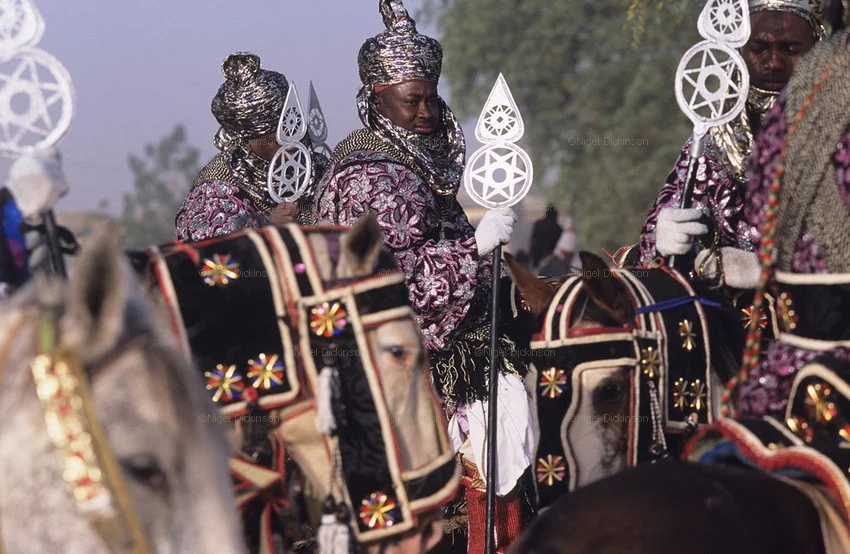
Several tourists have expressed disappointment over the abrupt cancellation of the 2025 Eid-el-Fitr Durbar, a popular traditional horse-riding festival, in Kano State.
More than 160 tourists had traveled to Kano to witness the annual Sallah Durbar, which is renowned for its grandeur and cultural significance. The cancellation, announced shortly before the event, left many visitors disheartened.
Speaking at a press briefing in Kano, Mr. Virgil Taylor, a tourist from the United States who spent a year planning his trip, described the experience as disheartening. He arrived in Nigeria on March 28, 2025, only to learn of the Durbar’s cancellation.
“Kano Durbar, as I understood from my research, was the biggest Durbar to visit. I only learned that the Durbar was canceled when I arrived in Kano. I was terribly disappointed because I had made significant financial commitments to the trip, arranging everything in advance,” Taylor said.
The first-time visitor to Nigeria noted that the Durbar represented a unique and historic opportunity for him, one he had long anticipated. Despite the setback, he appreciated the efforts of the Executive Secretary of the Kano State History and Culture Bureau, Mr. Ahmad Yusuf, and Governor Abba Kabir Yusuf, for providing alternative experiences for tourists.
Taylor, however, urged the Federal Government to minimize the issuance of security threats that could deter investors and tourists from visiting Nigeria. “Despite the financial cost, I consider my visit a blessing and would consider returning, hoping not to be disappointed again,” he added.
Similarly, Lekan Yusha’u, a UK-based Nigerian and polo agent, expressed frustration over the cancellation. He noted that his visit, along with the invitation extended to his friends, was largely inspired by UNESCO’s recognition of the Durbar as part of its heritage program.
“They have never ridden a horse in such a long procession. My goal, along with a couple of friends, was to ensure that within the next year, we put the Kano Durbar procession in the Guinness World Records. Kano Durbar has the largest gathering of horses in the world, with over 4,000 horses participating in a single procession,” Yusha’u said.
He revealed that he had spent over £6,000 on his flight alone, excluding other expenses, and had met over 160 foreign tourists who had come for the same event.
Yusha’u urged the Kano State Government to capitalize on the event’s global appeal, emphasizing that the Kano Durbar is unique to northern Nigeria.
“Both the state and federal government should not disappoint us again by canceling the Kano Durbar,” he said.
The annual Durbar festival in Kano is a cultural showcase that attracts visitors from around the world, featuring colorful horse parades, traditional dances, and displays of local heritage.
Columns
I got married to man who wasn’t financially sound – Michelle Obama admits
Published
2 days agoon
April 3, 2025By
Ekwutos Blog
Former U.S. First Lady Michelle Obama has admitted that Barack Obama was “not financially sound” when she met him.
The couple met in 1988 when Barack took a job at a law firm in Chicago where Michelle was already working.
Speaking on the podcast she hosts with her brother, Craig, Michelle spent much of their most recent episode discussing the importance of having a partner with financial stability.
Talking with British author Jay Shetty, Craig put the question directly to his famous sister.
He asked, “Would you be attracted to a guy who’s not financially sound when you meet him?”
Michelle immediately responded, “Uh, I married one.”
Craig then laughed and admitted to his sister that he’d set her up.
“Don’t you like that alley-oop I just threw you? In basketball, you just point—you don’t even have to say it,” he said.

Otti orders investigation as Fire Service officials switch off phones during fire disaster in Aba

As a L£gally married w0man. Atanda, how long do i need to wait before getting married to another man L£gally in case if my husband kpai? I hope there will be no need for Div0rce again

Supreme Court: Abure’s sack will restore peace, order in LP – Otti
Trending

 Trending5 months ago
Trending5 months agoNYA demands release of ‘abducted’ Imo chairman, preaches good governance
- Business5 months ago
US court acquits Air Peace boss, slams Mayfield $4000 fine

 Politics5 months ago
Politics5 months agoMexico’s new president causes concern just weeks before the US elections
- Entertainment5 months ago
Bobrisky transferred from Immigration to FCID, spends night behind bars
- Entertainment5 months ago
Bobrisky falls ill in police custody, rushed to hospital

 Politics5 months ago
Politics5 months agoRussia bans imports of agro-products from Kazakhstan after refusal to join BRICS

 Politics5 months ago
Politics5 months agoPutin invites 20 world leaders
- Politics1 year ago
Nigerian Senate passes Bill seeking the establishment of the South East Development Commission.

